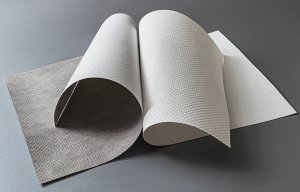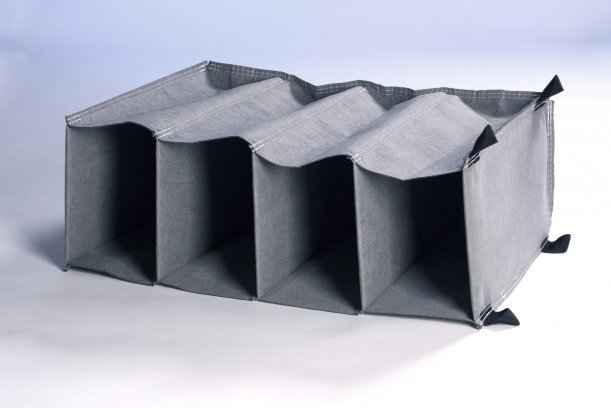
Smoothly does it
Microfilament textiles have a small carbon footprint because their manufacturing process uses low CO2 energy sources.

17th January 2023
Innovation in Textiles
|
Weinhein, Germany
By using a high share of recycled content in its Evolon materials, Freudenberg Performance Materials offers technical packaging textiles with a reduced carbon footprint of an average 35%.
An independent LCA study has shown additional benefits such as energy resource savings and lower water use and Evolon fabrics also provide sustainability benefits over the packaging’s entire life cycle thanks to high end performance and durability.
The study, which was finalised in 2022 and conducted according to the principles of ISO 14040/ ISO 14044 standards, following the recommendations of the Product Environmental Footprint and the Circular Footprint Formula, made a Cradle-to-Gate assessment of several Evolon products using virgin or recycled PET.
It highlighted significant additional benefits on other criteria such as lower water use, reduced emissions into water and lower ozone formation, as well as important savings in minerals, metals and energy carrier resources. Freudenberg has also identified routes to further decreasing the material’s CO2 emissions.
Evolon microfilament textiles have a small carbon footprint because their manufacturing process uses low CO2 energy sources. The fabrics are lightweight and can be reused throughout entire production programmes such as for automotive platforms. The new Evolon RE fabrics contain up to 85% of recycled PET which is produced in-house from post-consumer PET bottles.
They are suitable for reusable technical packaging which eliminates the use of thousands of disposable packaging materials and offer scratch-free, lint-free, high-end surface protection for moulded plastic or painted parts and other sensitive industrial and automotive components during transport. This contributes to lowering the scrap rate of parts and providing both financial and ecological benefits.

Business intelligence for the fibre, textiles and apparel industries: technologies, innovations, markets, investments, trade policy, sourcing, strategy...
Find out more